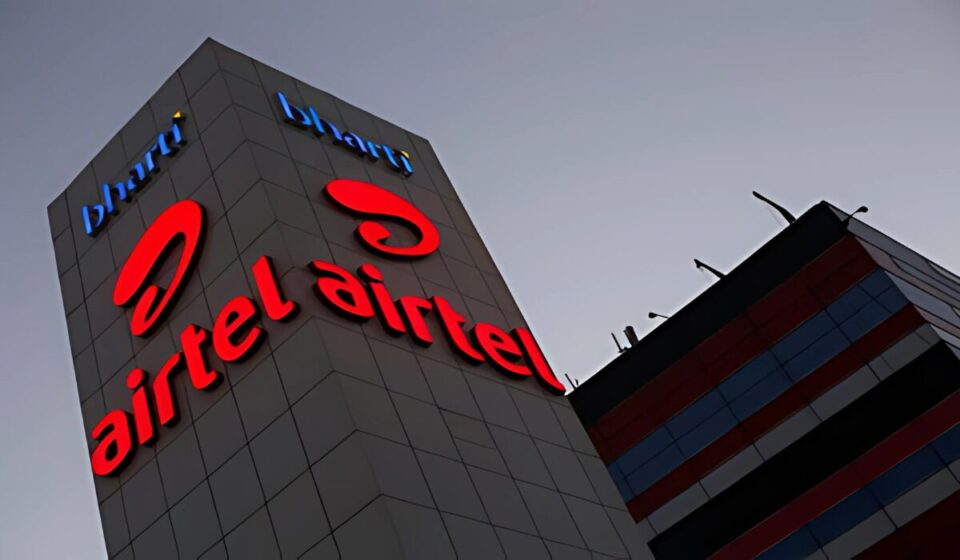New Delhi, May 5, 2025 – Bharti Airtel, India’s second-largest telecommunications operator, is intensifying efforts to secure government approval for an equity swap deal to convert over ₹41,000 crore of its adjusted gross revenue (AGR) dues into equity, a move aimed at easing its substantial debt burden and reshaping its financial structure. The proposal, which follows a precedent set by rival Vodafone Idea, could see the government acquiring a 2–4% stake in the telecom giant, marking a significant step in Airtel’s strategy to strengthen its balance sheet and fuel future growth.
Airtel’s request, formally submitted to the Department of Telecommunications (DoT) on April 1, 2025, is driven by the need to alleviate financial strain caused by a massive debt load, estimated at ₹1.77 lakh crore, with a significant portion tied to AGR dues stemming from a 2019 Supreme Court ruling. The ruling mandated telecom operators to pay hefty licence fees and spectrum usage charges, including penalties and interest, totaling ₹1.47 lakh crore across the industry. Airtel’s outstanding government dues are reported to exceed ₹70,000 crore, with ₹41,000 crore specifically targeted for this equity conversion.
The company has emphasized the urgency of the swap, citing the high debt burden of its promoter, Bharti Telecom Limited (BTL), which holds a 40.47% stake in Airtel. BTL’s debt has surged to nearly ₹40,000 crore by the end of FY25, up from ₹15,900 crore two years prior, with a debt-equity ratio climbing to 5.4. This financial strain, exacerbated by BTL’s share purchases from Singtel and the Mittal family, has raised concerns among rating agencies about potential credit downgrades, which could hamper Airtel’s ability to raise future capital. “Airtel has warned that any potential downgrade will adversely impact its own ability to raise further debt,” a source familiar with the matter told The Economic Times.
The equity swap is seen as a strategic maneuver to conserve cash and enhance financial flexibility, particularly as the moratorium on AGR dues, granted under the 2021 telecom reforms package, is set to expire in September 2025. Airtel argues that converting dues into equity would not only reduce its debt but also allow the government to hold a stake in a profitable, fast-growing enterprise with strong market performance. Unlike Vodafone Idea, whose government-held equity has yielded negative returns, Airtel’s stock, closing at ₹1,871 on May 5, 2025, has risen 46.47% over the past year, offering the government a chance for positive returns.
Airtel’s financial health, underscored by a net profit of ₹14,760.7 crore in the December 2024 quarter and revenues of ₹46,878 crore, positions it favorably compared to its debt-laden rival. However, the company has stressed the need for a level playing field in the telecom sector, urging the DoT to apply non-discriminatory policies. “The telecom reforms package is for the sector, not any specific company,” analysts noted, suggesting that denying Airtel’s request could be challenging given the precedent set with Vodafone Idea, which saw ₹36,950 crore of its dues converted into a 48.99% government stake.
The proposal, however, faces scrutiny. Government sources indicate that the DoT is likely to conduct a thorough review, given Airtel’s robust financials compared to Vodafone Idea’s loss-making status. “No decision will be made in haste,” a source told ET Now, highlighting potential concerns about granting relief to a profitable company. Additionally, the government’s decision to defer waiving interest and penalties on AGR dues, which could have provided over ₹1 lakh crore in relief to legacy operators, adds uncertainty to Airtel’s bid.
If approved, the equity swap could significantly strengthen Airtel’s balance sheet, freeing up funds for critical investments in 5G standalone (SA), 6G, fiber infrastructure, data centers, and submarine cables. Airtel has argued that the AGR judgment has strained its ability to compete, particularly against rivals like Reliance Jio, and that government support is essential for sustained infrastructure rollout. “The company said any further asset sale may impact its overall stability and become vulnerable to competitive moves,” a source cited by ET Telecom.
As Airtel awaits a decision, the outcome could redefine its financial trajectory and set a benchmark for debt management in India’s telecom sector. With a market capitalization of ₹11,35,081 crore and a strong growth outlook, Airtel’s push for debt relief underscores its proactive approach to navigating a challenging financial landscape while maintaining its competitive edge.


